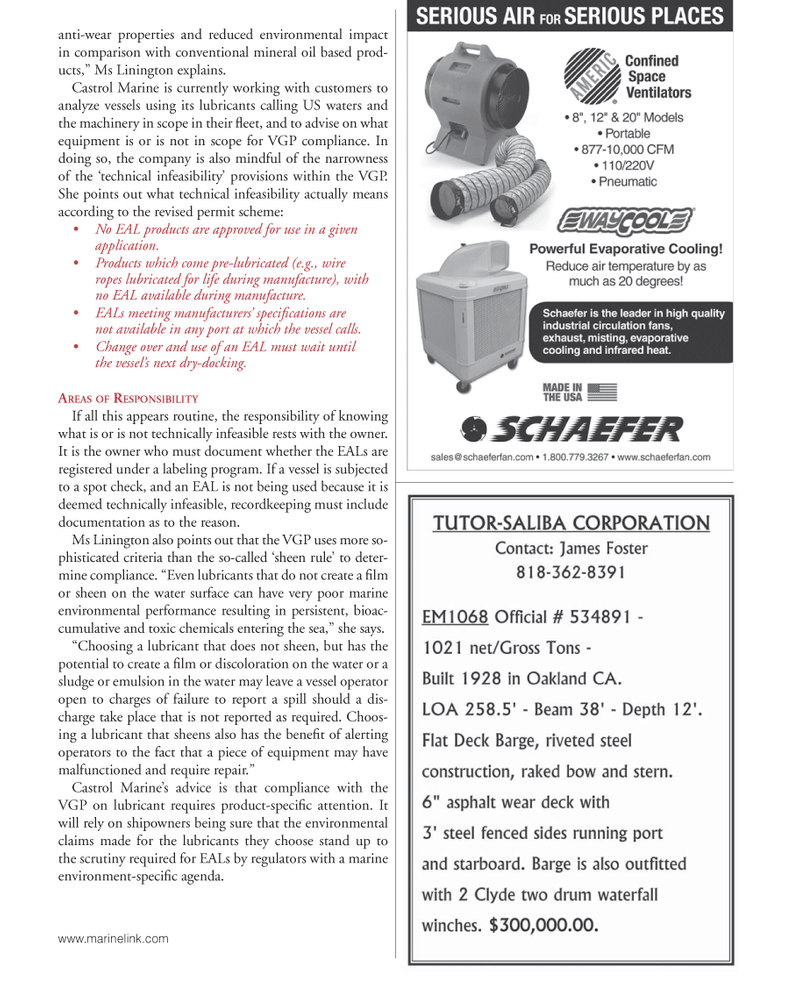
Page 29: of Marine News Magazine (August 2013)
Salvage & Response
Read this page in Pdf, Flash or Html5 edition of August 2013 Marine News Magazine
anti-wear properties and reduced environmental impact in comparison with conventional mineral oil based prod- ucts,? Ms Linington explains.Castrol Marine is currently working with customers to analyze vessels using its lubricants calling US waters and the machinery in scope in their ? eet, and to advise on what equipment is or is not in scope for VGP compliance. In doing so, the company is also mindful of the narrowness of the technical infeasibility provisions within the VGP. She points out what technical infeasibility actually means according to the revised permit scheme: ? No EAL products are approved for use in a given application. ? Products which come pre-lubricated (e.g., wire ropes lubricated for life during manufacture), with no EAL available during manufacture. ? EALs meeting manufacturers speci? cations are not available in any port at which the vessel calls. ? Change over and use of an EAL must wait until the vessels next dry-docking. AREAS OF RESPONSIBILITY If all this appears routine, the responsibility of knowing what is or is not technically infeasible rests with the owner. It is the owner who must document whether the EALs are registered under a labeling program. If a vessel is subjected to a spot check, and an EAL is not being used because it is deemed technically infeasible, recordkeeping must include documentation as to the reason. Ms Linington also points out that the VGP uses more so- phisticated criteria than the so-called sheen rule to deter- mine compliance. Even lubricants that do not create a ? lm or sheen on the water surface can have very poor marine environmental performance resulting in persistent, bioac- cumulative and toxic chemicals entering the sea,? she says. Choosing a lubricant that does not sheen, but has the potential to create a ? lm or discoloration on the water or a sludge or emulsion in the water may leave a vessel operator open to charges of failure to report a spill should a dis- charge take place that is not reported as required. Choos- ing a lubricant that sheens also has the bene? t of alerting operators to the fact that a piece of equipment may have malfunctioned and require repair.? Castrol Marines advice is that compliance with the VGP on lubricant requires product-speci? c attention. It will rely on shipowners being sure that the environmental claims made for the lubricants they choose stand up to the scrutiny required for EALs by regulators with a marine environment-speci? c agenda. www.marinelink.com MN August2013 Layout 18-31.indd 297/23/2013 7:19:04 PM

 28
28

 30
30
